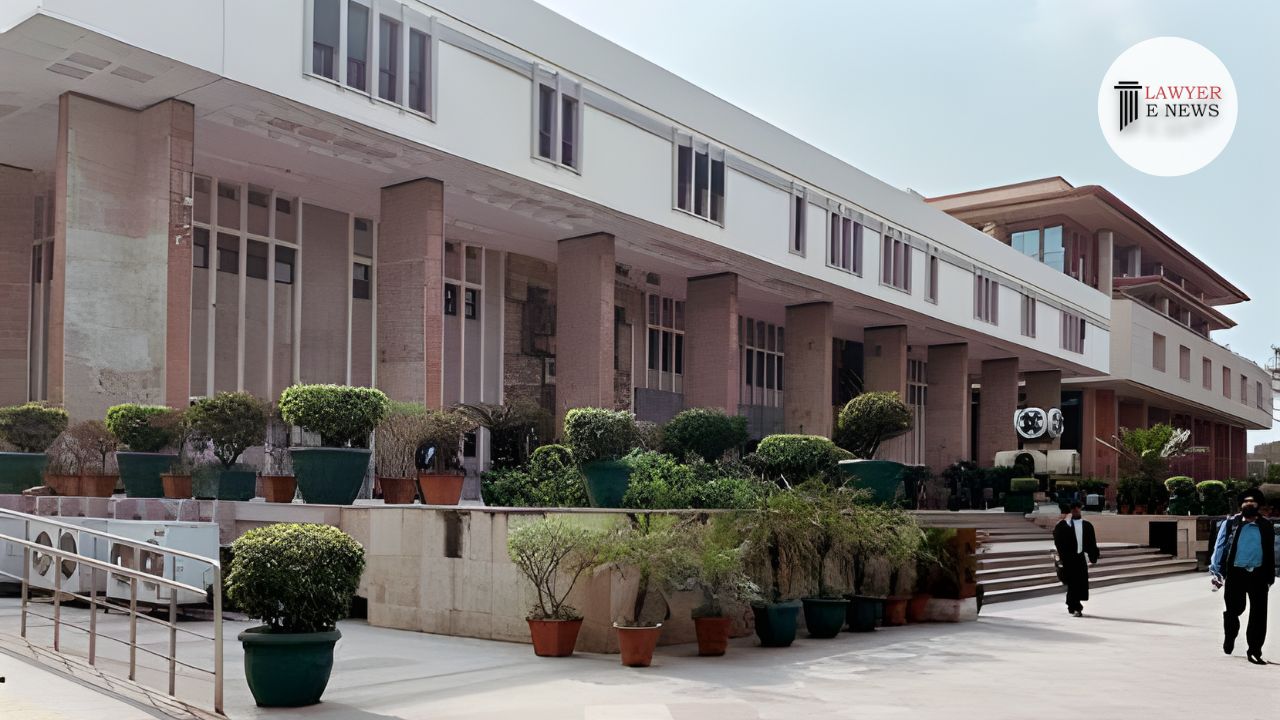-
by Admin
15 February 2026 5:35 AM



The Delhi High Court has upheld the preliminary decree of partition regarding the property dispute between Shyam Lal Bansal and Nirmal Bansal & Ors., validating the Will of Late Sh. Krishan Kumar Bansal and confirming the respondents’ half share in the suit property. The judgment, delivered by a bench comprising Justices Rajiv Shakdher and Amit Bansal, also dismissed the appeal concerning non-joinder of necessary parties.
The case revolves around the partition of property Plot No. B-3/9, Janak Puri, New Delhi. The property was jointly acquired by Shyam Lal Bansal and his brother Krishan Kumar Bansal through a registered Perpetual Lease Deed dated September 3, 1974. An oral agreement in 1977 resulted in Krishan Kumar Bansal taking possession of the front portion, while Shyam Lal Bansal occupied the rear portion. Upon Krishan Kumar Bansal’s death in 2006, his Will bequeathed his share to his daughter-in-law Nirmal Bansal and grandson Gaurav Bansal. Following the refusal of Shyam Lal Bansal to convert the property from leasehold to freehold, the respondents filed a suit for partition and permanent injunction in 2019.
The Court underscored the legitimacy of the Will, with Justice Amit Bansal noting, “The Will executed by Late Sh. Krishan Kumar Bansal has been duly proved by the respondents/plaintiffs.” The Court emphasized that probate was unnecessary in Delhi, thus dismissing the appellant’s challenge to the Will’s validity.
Addressing the appellant’s contention regarding non-joinder of other legal heirs, the Court found no merit, stating, “The remaining children of Late Sh. Krishan Kumar Bansal were neither necessary nor proper parties to the suit.” It was noted that none of the other legal heirs had contested the Will or claimed any rights over the suit property.
The Court affirmed that the property had not been formally partitioned, and both parties were entitled to an equal half share. Justice Amit Bansal remarked, “The suit property was never formally partitioned by metes and bounds, necessitating a preliminary decree of partition.”
The decree of permanent injunction was upheld, preventing the appellant from creating third-party rights over the respondents’ share in the undivided property.
The judgment elaborated on the necessity of formal partition by metes and bounds despite the oral agreement and individual possession. It clarified that an undivided property must be formally partitioned to establish clear ownership and prevent future disputes.
Justice Amit Bansal stated, “There is no merit in the submission that the suit property was already partitioned. The defense of the property being already divided was not taken in the written statement, and the suit property remains undivided.”
The Delhi High Court’s decision reinforces the legal principles surrounding partition and the execution of Wills. By validating the respondents’ claims and dismissing the appellant’s contentions, the judgment ensures clarity in property disputes and highlights the importance of formal procedures in establishing ownership. This decision is expected to set a precedent for similar cases, emphasizing the judiciary’s commitment to upholding the rule of law and ensuring justice in property disputes.
Date of Decision: July 19, 2024
Shyam Lal Bansal v. Nirmal Bansal & Ors.
